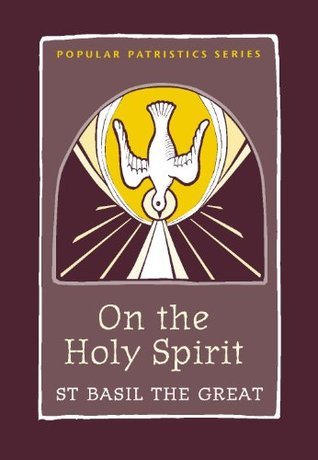What do you think?
Rate this book


126 pages, Paperback
First published January 1, 375
Whoever hears 'spirit'...must advance to the highest heights in his thoughts and conceive of a necessary, intellectual substance that is infinite in power, unlimited in greatness, immeasurable by time or ages, and generous with the goods that it has. Everything that needs holiness turns to him. All that live virtuously desire him, as they are watered by his inspiration and assisted toward their proper and natural end.
He perfects others, but himself lacks nothing. He lives, but not because he has been restored to life; rather, he is the source of life. He does not grow in strength gradually, but is complete all at once. He is established in himself and present everywhere. He is the source of holiness, an intellectual light for every rational power's discovery of truth, supplying clarity, so to say, through himself.
He is inaccessible in nature, but approachable in goodness. He fills all things with power, but only those who are worthy participate in him. He is not participated in all at once but shares his energy in "proportion to faith" (Rom 12.6). He is simple in substance, 45 but manifold in powers. He is present as a whole to each and wholly present everywhere. He is portioned out impassibly and participated in as a whole. He is like a sunbeam whose grace is present to the one who enjoys him as if he were present to such a one alone, and still he illuminates land and sea and is mixed with the air.
Just so, indeed, the Spirit is present to each one who is fit to receive him, as if he were present to him alone, and still he sends out grace that is complete and sufficient for all. The things that participate in him enjoy him to the extent that their nature allows, not to the extent that his power allows.